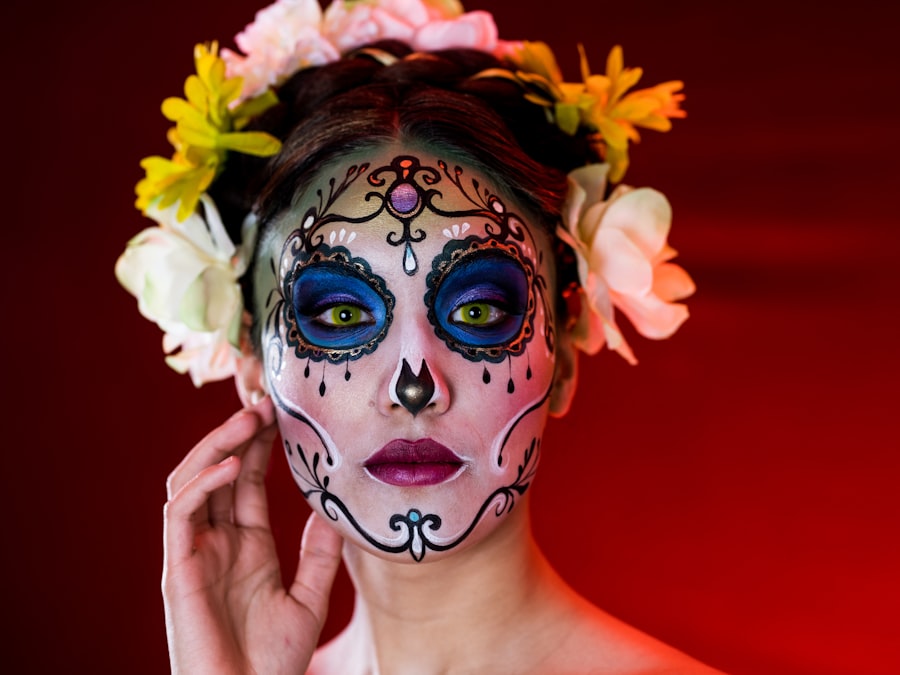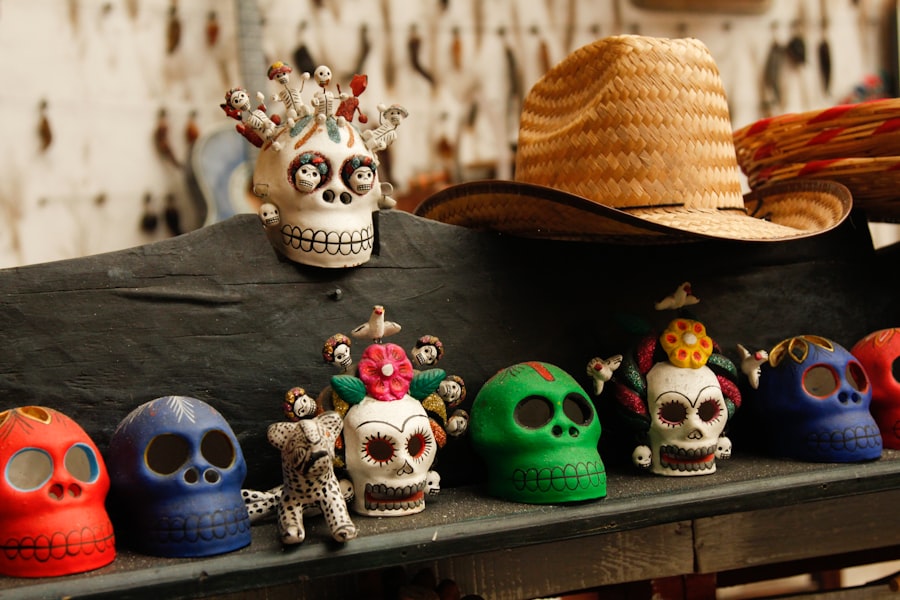When you think of Mexico, vibrant colors, rich traditions, and lively celebrations likely come to mind. Mexican cultural festivals are a testament to the country’s deep-rooted history and diverse heritage. These festivals are not merely events; they are a celebration of life, community, and the unique blend of indigenous and colonial influences that shape Mexican identity.
Each festival offers a glimpse into the soul of the nation, showcasing its art, music, dance, and culinary delights. As you immerse yourself in these festivities, you will discover the warmth and hospitality of the Mexican people, who take immense pride in sharing their culture with the world. Attending a Mexican cultural festival is an experience that transcends mere observation.
It invites you to participate in a living tapestry of traditions that have been passed down through generations. From the colorful parades to the intricate altars adorned with marigolds and sugar skulls, every detail tells a story. You will find that these festivals are not just about entertainment; they are a way for communities to come together, honor their ancestors, and celebrate their shared heritage.
Whether you are a local or a traveler, engaging with these cultural events will leave you with lasting memories and a deeper appreciation for Mexico’s rich cultural landscape.
Key Takeaways
- Mexican cultural festivals are vibrant and diverse celebrations that showcase the rich traditions and heritage of the country.
- Day of the Dead (Día de los Muertos) is a unique festival that honors deceased loved ones with colorful altars, parades, and offerings.
- The Guelaguetza Festival in Oaxaca features traditional dance, music, and food, celebrating the state’s indigenous cultures.
- The Cervantino International Festival in Guanajuato is a renowned event that highlights the arts, including theater, dance, music, and visual arts.
- Carnival in Veracruz is a lively and colorful celebration with parades, music, dancing, and elaborate costumes, attracting visitors from around the world.
Day of the Dead (Día de los Muertos)
One of the most iconic Mexican festivals is the Day of the Dead, or Día de los Muertos. Celebrated on November 1st and 2nd, this festival honors deceased loved ones through vibrant altars, known as ofrendas, adorned with photographs, favorite foods, and personal mementos. As you walk through the streets during this time, you will be captivated by the colorful decorations and the sweet scent of pan de muerto, a traditional bread shaped like skulls.
The atmosphere is both festive and reflective, as families gather to remember those who have passed away. The Day of the Dead is a unique blend of indigenous beliefs and Catholic traditions. You may notice that many elements of the celebration reflect ancient customs, such as the use of marigolds to guide spirits back to their altars.
The festival is not about mourning; rather, it is a joyous occasion that celebrates life and death as interconnected parts of existence. You will find that communities come alive with music, dance, and parades featuring beautifully decorated skeletons known as calacas. Engaging in this celebration allows you to connect with the profound respect Mexicans have for their ancestors while experiencing the joy of life in all its forms.
Guelaguetza Festival

The Guelaguetza Festival, held annually in Oaxaca, is another remarkable cultural event that showcases the region’s indigenous heritage. This festival takes place in July and features traditional music, dance, and crafts from various Oaxacan communities. As you attend this vibrant celebration, you will witness colorful costumes representing different indigenous groups, each telling its own story through dance and song.
The Guelaguetza is not just a performance; it is a communal gathering where people come together to share their culture and traditions. At the heart of the Guelaguetza is the concept of “guelaguetza,” which means “to give” or “to share.” This principle emphasizes reciprocity and community support among the diverse cultures of Oaxaca. You will find that this festival fosters a sense of unity among participants and attendees alike.
As you enjoy traditional foods like mole and tlayudas, you will also have the opportunity to engage with local artisans showcasing their crafts. The Guelaguetza Festival is a celebration of identity and resilience, reminding you of the importance of preserving cultural heritage in an ever-changing world.
Cervantino International Festival
| Year | Number of Events | Number of Artists | Number of Countries Represented |
|---|---|---|---|
| 2018 | 195 | 2,500 | 35 |
| 2019 | 210 | 2,800 | 37 |
| 2020 | Cancelled | Cancelled | Cancelled |
| 2021 | 180 | 2,300 | 30 |
The Cervantino International Festival is one of Mexico’s most prestigious cultural events, held annually in Guanajuato. Named after the famous writer Miguel de Cervantes, this festival celebrates literature, music, theater, and visual arts from around the globe. As you explore the cobblestone streets of Guanajuato during this time, you will be surrounded by an eclectic mix of performances ranging from classical music concerts to contemporary dance shows.
The festival attracts artists and performers from various countries, creating a rich tapestry of cultural exchange. What sets the Cervantino International Festival apart is its commitment to promoting artistic dialogue and collaboration. You will find that this event not only showcases established artists but also provides a platform for emerging talents to shine.
The atmosphere is electric as locals and visitors alike come together to appreciate the arts in all its forms. Whether you are attending a thought-provoking theater performance or enjoying an open-air concert under the stars, you will feel a sense of connection to the global artistic community. The Cervantino Festival is an invitation to celebrate creativity and explore new perspectives through art.
Carnival in Veracruz
Carnival in Veracruz is one of Mexico’s most exuberant celebrations, known for its lively parades, music, and dance. Taking place in February or March before Lent, this festival transforms the coastal city into a vibrant spectacle filled with colorful floats and costumed revelers. As you join in the festivities, you will be swept away by the infectious energy of salsa music and traditional dances like La Bamba.
The streets come alive with laughter and joy as people from all walks of life come together to celebrate. The Carnival in Veracruz is steeped in history and tradition, reflecting the city’s diverse cultural influences. You will discover that this celebration has roots in both African and indigenous traditions, creating a unique blend that defines Veracruz’s identity.
The festival culminates in a grand parade featuring elaborate costumes and performances that pay homage to local legends and folklore. Participating in this carnival allows you to experience the spirit of community and revelry that characterizes Mexican culture. It’s an opportunity to let loose, dance freely, and embrace the joy of life alongside locals who welcome you with open arms.
San Cristobal de las Casas Cultural Festival

In the heart of Chiapas lies San Cristobal de las Casas, a city known for its rich indigenous culture and stunning colonial architecture. The San Cristobal de las Casas Cultural Festival celebrates this heritage through music, art, and gastronomy. Held throughout the year but particularly vibrant during specific months, this festival invites you to explore the diverse traditions of Chiapas’ indigenous communities.
As you wander through markets filled with handmade crafts and sample local delicacies like tamales and pozole, you will gain insight into the region’s unique cultural landscape. The festival features performances by local musicians and dancers who showcase traditional Chiapanecan art forms. You may find yourself captivated by the rhythms of marimba music or enchanted by folk dances that tell stories of ancient customs.
Engaging with local artisans allows you to appreciate their craftsmanship while supporting sustainable practices within the community. The San Cristobal de las Casas Cultural Festival is not just an event; it is an opportunity for cultural exchange that fosters understanding and appreciation for Mexico’s indigenous peoples.
Huapango International Festival
The Huapango International Festival celebrates one of Mexico’s most beloved musical genres: huapango. This lively folk music style originates from the Huasteca region and features intricate rhythms played on instruments like guitars and violins. Held annually in various locations across Mexico, including San Luis Potosí, this festival brings together musicians from different backgrounds to showcase their talent and passion for huapango music.
As you attend performances filled with energetic dancing and heartfelt melodies, you will feel an undeniable connection to Mexico’s musical heritage. What makes the Huapango International Festival special is its emphasis on preserving traditional music while encouraging innovation within the genre. You will witness both seasoned musicians and emerging artists collaborating on stage, creating a dynamic atmosphere that celebrates creativity.
The festival also includes workshops where attendees can learn about huapango’s history and techniques directly from experienced musicians. By participating in this event, you not only enjoy captivating performances but also contribute to keeping this vibrant musical tradition alive for future generations.
Why You Should Experience Mexican Cultural Festivals
Experiencing Mexican cultural festivals is more than just attending events; it is an opportunity to connect with a rich tapestry of history, tradition, and community spirit. Each festival offers a unique lens through which to view Mexico’s diverse cultural landscape while allowing you to engage with locals who are eager to share their stories and customs. From the reflective beauty of Día de los Muertos to the exuberant celebrations at Carnival in Veracruz, these festivals invite you to immerse yourself fully in Mexico’s vibrant culture.
As you participate in these celebrations, you will find that they foster a sense of belonging and connection that transcends borders. You will leave with cherished memories and newfound friendships while gaining a deeper understanding of what it means to be part of a global community united by shared experiences. So whether you’re dancing at Guelaguetza or enjoying art at the Cervantino International Festival, embrace every moment—because these cultural festivals are not just events; they are gateways into the heart of Mexico itself.
